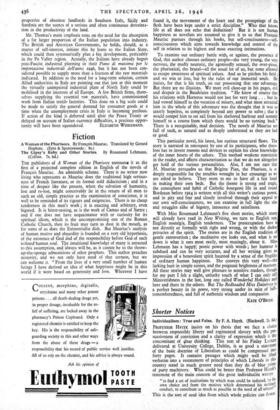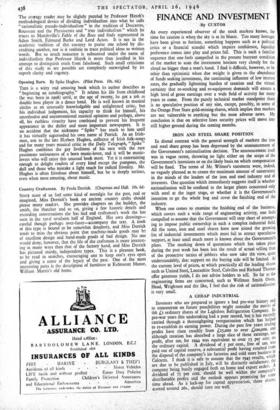\\ Shorter Notices Individualism: True and False. By F. A.
Hayek. (Blackwell. 2s. 6d.) PROFESSOR HAYEK insists on his thesis that we face a choice between responsible liberty and regimented slavery with the per suasiveness of conviction and a clarity of expression' which is the concomitant of clear thinking. This text of his Finlay Lecture delivered at University College, Dublin, is as good a statement of the -basic doctrine of Liberalism as could be compressed into forty pages. It contains passages which might well be lifted verbatim into a restatement of principles of which Liberals in this country stand in much greater need than they do of blue prints of party machinery. What could be better than Professor HaYeles statement of the main concern of the great individualist writers
" to find a set of institutions by which man could be induced, by his • own choice and from the motives which determined his ordinal?' conduct, to contribute as much as possible to the need of all'others?" This is the sort of seed idea from which whole policies can flower.
The average reader may be slightly puzzled by Professor Hayek's methodological device of dividing individualism into what he calls " rationalistic pseudo-individualism " in the tradition of Descartes, Rousseau and the Physiocrats and " true individualism " which he traces to Mandeville's Fable of the Bees and finds represented in Adam Smith, Edmund Burke and Lord Acton. It is not in the academic tradition of this country to praise one school by dis- crediting another, nor is it realistic to trace political ideas to written words. But so much nonsense is subsumed under the name of individualism that Professor Hayek is more than justified in his attempt to distinguish truth from falsehood. Such small criticisms of this study as are possible are completely outweighed by its superb clarity and cogency.



























 Previous page
Previous page